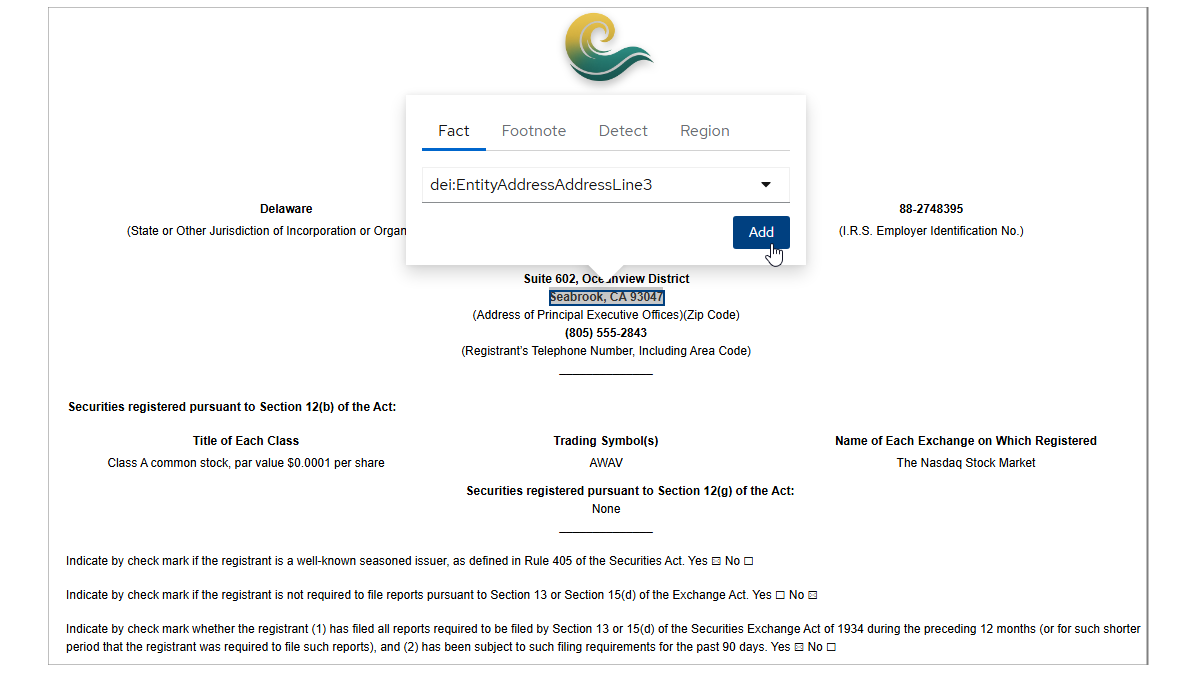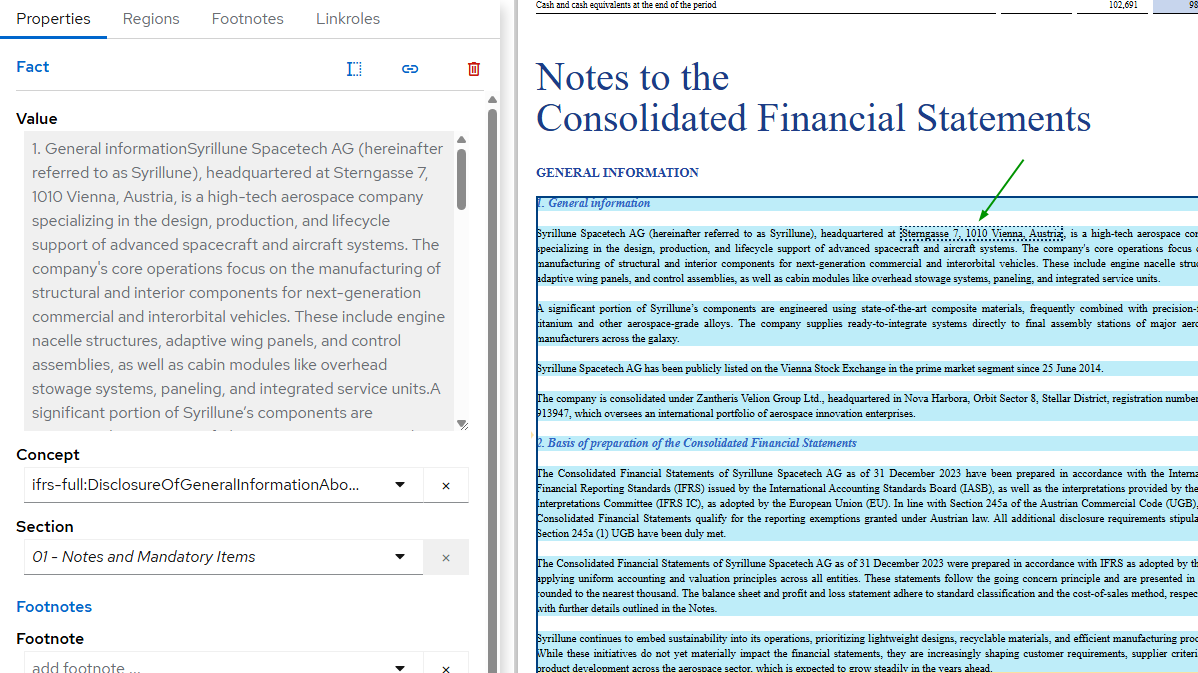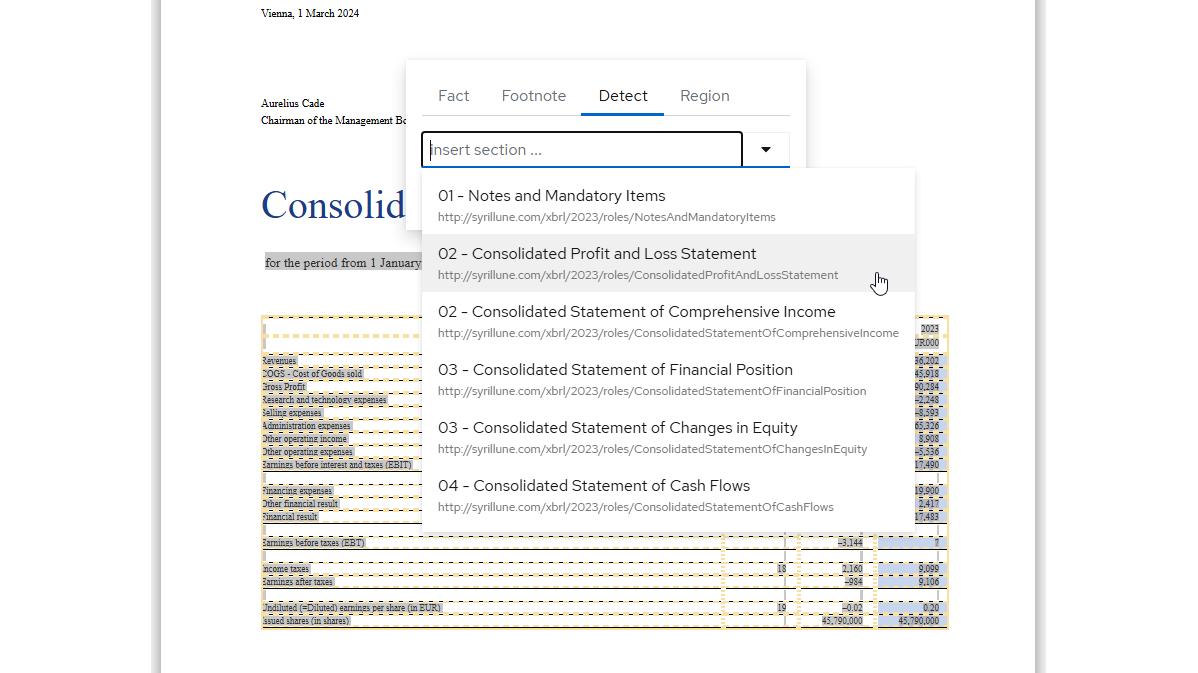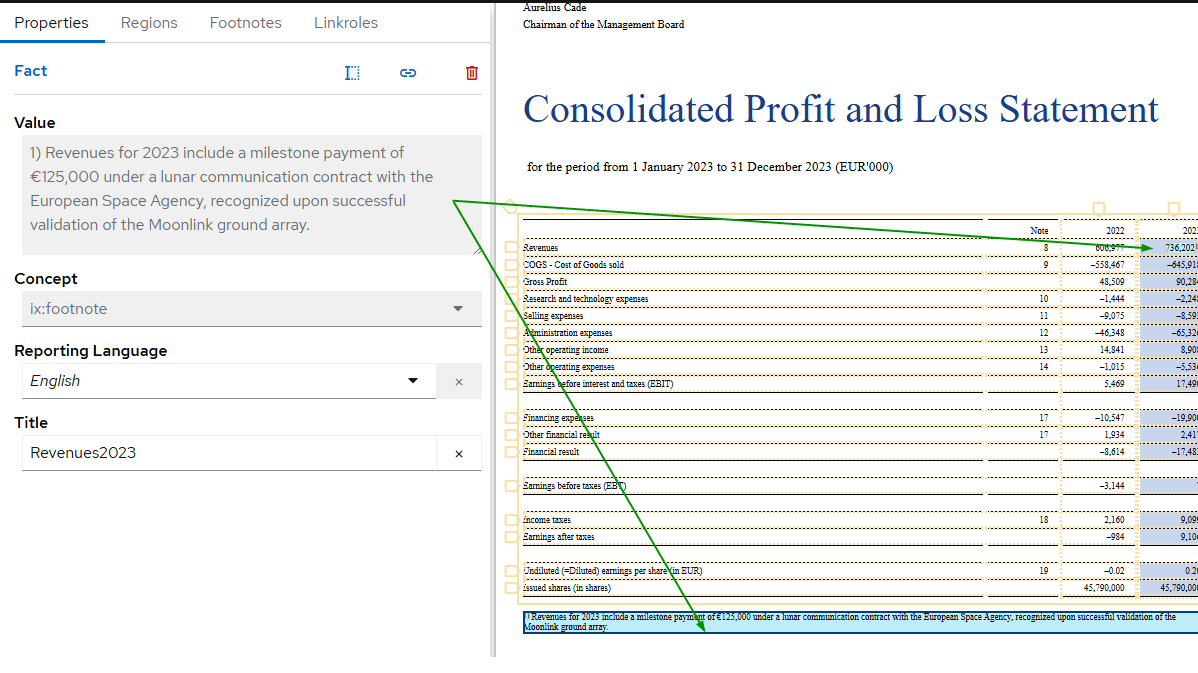
Preparing XBRL filing documents is finally easy — and free!
The Altova XBRL Tagging solution makes it easy to tag yearly financial statements according to ESEF or US GAAP requirements using intelligent, visual tools.

Preparing XBRL filing documents is finally easy — and free!
The Altova XBRL Tagging solution makes it easy to tag yearly financial statements according to ESEF or US GAAP requirements using intelligent, visual tools.
Manually tagging financial reports for XBRL compliance can be extremely difficult due to the complexity of XBRL taxonomies, frequent regulatory updates, and the technical nature of the process. Choosing the correct tag from thousands of options requires both accounting expertise and a deep understanding of XBRL structures. On top of that, much of the data to be tagged may appear in footnotes or embedded in narrative sections, making it even harder to identify and apply the right tags by hand.
The Altova XBRL Tagging solution makes this process dramatically easier by letting users apply tags directly to a familiar view of the source document — like a PDF, HTML, or JPEG version of the financial report. To support customers worldwide, it allows tagging reports to comply with ESEF requirements in the European Union and US GAAP in the United States.
Altova XBRL Tagging generates reports compliant with the two most widely used XBRL frameworks in the world, allowing users to work in US GAAP mode or ESEF mode.
The US GAAP taxonomy is developed by the Financial Accounting Standards Board (FASB) for public companies filing with the United States Securities and Exchange Commission (SEC). SEC filers must tag all financial statements and footnotes using Inline XBRL (iXBRL), with detailed tagging required throughout. The taxonomy is extensive, updated annually, and available only in English, aligning with U.S. regulatory and disclosure requirements.
The XBRL Tagging solution includes built in tools for creating US GAAP compliant reports. Here's how easy it is to get started:
The ESEF (European Single Electronic Format) taxonomy is based on IFRS and mandated by ESMA for annual financial reporting by companies listed on EU-regulated markets.
The XBRL Tagging app makes it easy to meet compliance requirements for submitting financial statements in iXBRL according to the ESEF taxonomy. EU-regulated companies can start their report by uploading the taxonomy package relevant for their location and business. Here's how it works:
In the narrative sections of reports, there are usually multiple text values and blocks that need to be tagged. The XBRL Tagging app lets you flexibly select regions by highlighting them and then assigning the correct section value in the Properties tab. Facts within the region will automatically inherit the properties of the region. Next, text within the region can be tagged, and text nested within the block (such as the address of the entity’s registered office highlighted below) can also be tagged with the appropriate concept as needed.
Whether you are tagging ESEF or US GAAP data, automatic table detection makes it easy to get started. Simply click anywhere in a table and select Detect. XBRL Tagging highlights the table, and you can select the corresponding linkrole from the pre-populated list.
The XBRL Tagging solution automatically detects concepts and periods present in the table, and you can review the accuracy by hovering over any fact.
After a quick review, you can tag all facts in a table at once: Simply hover over the table region and select Add Facts. This saves significant time compared to tagging each fact individually.
Of course, for complex tables that cover, for example, more than one period, facts can be tagged individually as necessary.
After tagging, you can review the properties of any fact in detail in the Properties tab.
Whether your report contains simple tables or highly complex layouts with multiple dimension members, the Altova XBRL Tagging solution streamlines the process with straightforward visual tools that make even the toughest structures easy to tag. The videos above walk your through how to get started.
Despite attempts to automate the process, tagging footnotes accurately remains one of the more nuanced and error-prone aspects of XBRL report preparation. The Altova XBRL Tagging solution makes footnote tagging easy with a few quick clicks. Simply select the footnote, give it a descriptive title, and then select the fact it applies to.
Once your report is tagged, the Altova XBRL tagging solution generates an XBRL report according to the specified US GAAP or ESEF taxonomy. To ensure your filing report is valid, any validation errors are displayed with relevant information in the messages window for easy troubleshooting
The Altova XBRL Tagging solution is available as a free public beta in at xbrl-tagging.com.
The app is fully functional, and no account or login is required to try it. Simply select US GAAP or ESEF mode to get started. To retain your data and any work you have completed, you can create a free account at any time.
If you try the XBRL Tagging solution and do not wish to create an account, simply exit the app and your data will not be saved.





